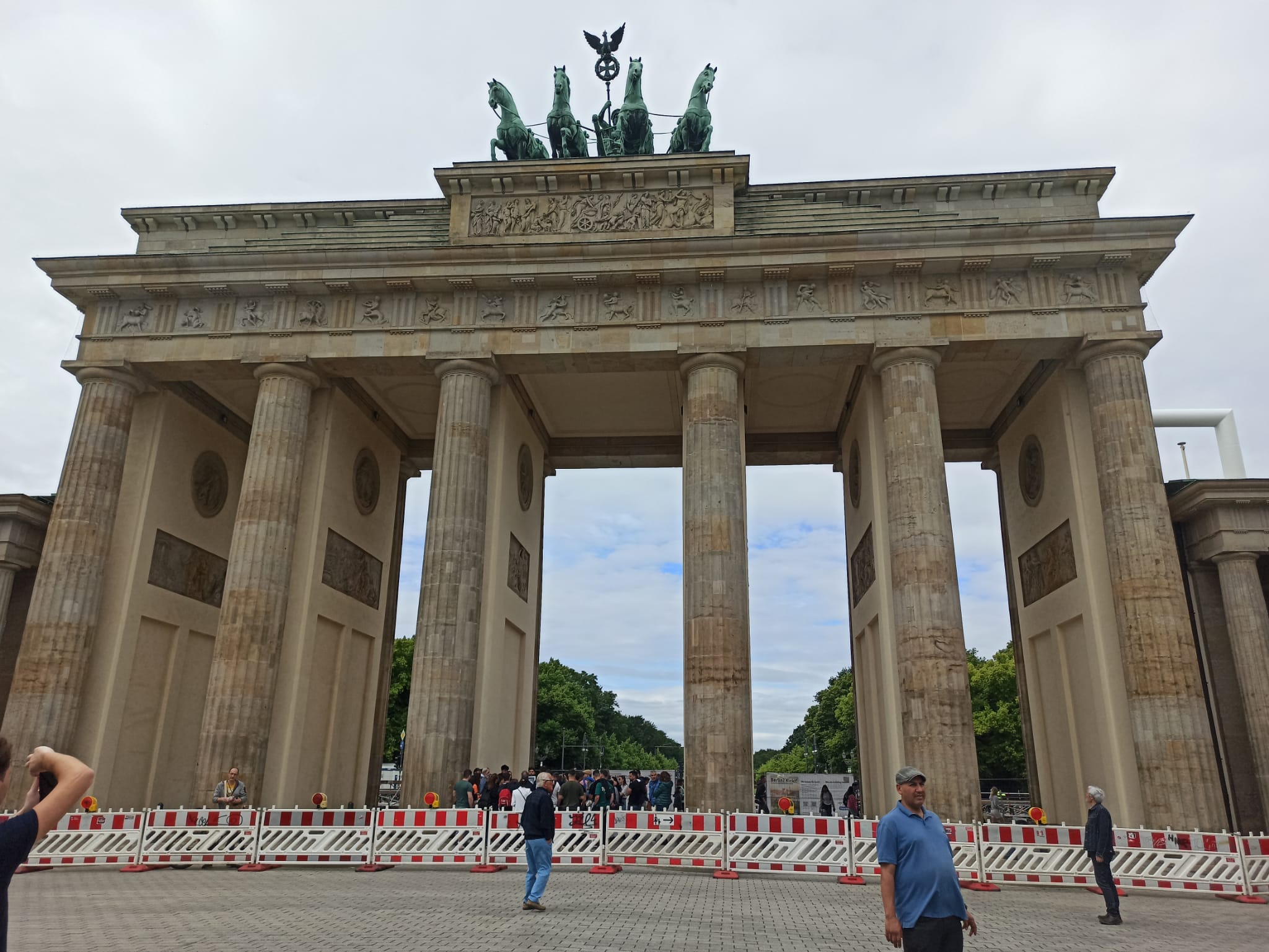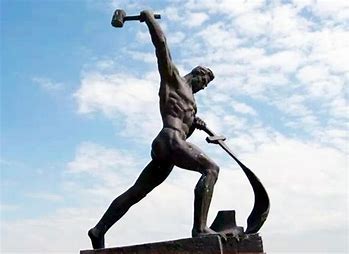DISARM NOW!
RECONCILIATION CALL ON JANUARY 30, 2025
Figurations or representations, such as nationalities, political systems as democracy, socialism, liberalism, or religions, or others, cannot be the fundament of peace. Figurations separate and divide us; they are not based on common sense, but constructions sustained by (the enforcement of) the state and at its service since they depend on it.
We understand each other by nature as human beings, we know of somebody else’s needs by putting us in his/her shoes, or if sad or happy when we see him or her, and everything real is this way, no matter his/her nationality, religion, we know what is good, as helping, cooperating, and what is bad, as harming, killing, etc. It is weird and amazing, however, how politics talk and use this understanding of our humanity but limiting it to some borders.
Indeed, when we talk about peace, we refer to humanity. Mozi, a Chinese philosopher of the fourth century BC puts it this way:
今有一人,入人园圃,窃其桃李,众闻则非之,上为政者得则罚之。此何也?以亏人自利也。至攘人犬豕鸡豚者,其不义又甚入人园圃窃桃李。是何故也?以亏人愈多,其不仁兹甚,罪益厚。
“Suppose a man enters the orchard of another and steals the other’s peaches and plums. Hearing of it the public will condemn it; laying hold of him the authorities will punish him. Why? Because he injures others to profit himself. As to seizing dogs, pigs, chickens, and young pigs from another, it is even more unrighteous than to steal peaches and plums from his orchard. Why? Because it causes others to suffer more, and it is more inhumane and criminal.”
杀一人谓之不义,必有一死罪矣,若以此说往,杀十人十重不义,必有十死罪矣;杀百人百重不义,必有百死罪矣。当此,天下之君子皆知而非之,谓之不义。今至大为不义攻国,则弗知1非,从而誉之,谓之义,情不知其不义也,故书其言以遗后世。若知其不义也,夫奚说书其不义以遗后世哉?今有人于此,少见黑曰黑,多见黑曰白,则以此人不知白黑之辩矣;少尝苦曰苦,多尝苦曰甘,则必以此人为不知甘苦之辩矣。今小为非,则知而非之。大为非攻国,则不知非,从而誉之,谓之义。此可谓知义与不义之辩乎?是以知天下之君子也,辩义与不义之乱也.
“The murder of one person is called unrighteous and incurs one death penalty. Following this argument, the murder of ten persons will be ten times as unrighteous and there should be ten death penalties; the murder of a hundred persons will be a hundred times as unrighteous and there should be a hundred death penalties. All the gentlemen of the world know that they should condemn these things, calling them unrighteous. But when it comes to the great unrighteousness of attacking states, they do not know that they should condemn it. On the contrary, they applaud it, calling it righteous. And they are really ignorant of its being unrighteous. Hence they have recorded their judgment to bequeath to their posterity. If they did know that it is unrighteous, then why would they record their false judgment to bequeath to posterity? Now, if there were a man who, upon seeing a little blackness, should say it is black, but, upon seeing much, should say it is white; then we should think he could not tell the difference between black and white. If, upon tasting a little bitterness one should say it is bitter, but, upon tasting much, should say it is sweet; then we should think he could not tell the difference between bitter and sweet. Now, when a little wrong is committed people know that they should condemn it, but when such a great wrong as attacking a state is committed people do not know that they should condemn it. On the contrary, it is applauded, called righteous. Can this be said to be knowing the difference between the righteous and the unrighteous? Hence we know the gentlemen of the world are confused about the difference between righteousness and unrighteousness.” (Mòzi, Book V-1 & 2).
Mòzǐ ´s doctrine is known as the policy of Universal Love (兼爱) (some translate it in English as Inclusive Care) or a longer expression of it: “Universal Love and Mutual Aid (兼相爱,交相利). Mòzǐ also explains that the cause of all evils is partiality or unilaterality (别-bie), exclusive-decision making, which unavoidably leads to confrontation.
The same idea is hold by Western cosmopolitanism, as we hear this from Plutarch:
“the much admired Republic of Zeno…., first author of the Stoic sect, aims singly at this, that neither in cities nor in towns we should live under laws distinct one from another, but that we should look upon all people in general to be our fellow-countryfolk and citizens, observing one manner of living and one kind of order, like a flock feeding together with equal right in one common pasture. This Zeno wrote, fancying to himself, as in a dream, a certain scheme of civil order, and the image of a philosophical commonwealth. (On the fortune or the virtue of Alexander, 329 A-B).
And such understanding and longing for humanity is exposed by many stoics and cosmopolitan authors as Cicero, Seneca, Marcus Aurelius…, this last one says:
If intelligence is common to us, and reason is also common to us, the reason that orders what should be done or avoided is also common to us. Granted this, the law is also common to us and we are fellow citizens, we participate in a citizenship and the world is our city (Meditations, Marco Aurelios, Book IV, 4)
“For the nature of the universe, having made all reasonable creatures one for another, to the end that they should do one another good” (Meditations, Marcus Aurelius, Book IX, 1)
Furthermore, the shared ideological peace vision and justification of war and expansion of every continental empire was human unity or inclusive decision making too, which would put an end to war, since this is just common sense and a very good tool for gaining people´s hearts. So was the case of the Chinese Empire under Confucianism, so was the case of Alexander the Great`s empire (the text of Plutarch quoted above is actually the introduction to Alexander own cosmopolitan undertaking with his conquests), so was it with the Roman Empire, fully immersed in a cosmopolitan culture, and Roma granted all people living within the Empire limits Roman citizenship, so is it also with the Catholic (universal) Church and it was with the Holy German Roman Empire, so is it with Islam, so was it with the Hispanic, also a catholic (universal) Monarchy or Empire, and even so was it with Communism (we can see this approach particularly in Engels). This view, however, lasts from the III century BC. until the XIX century when two maritime empires (thalassocracies -according to Greek terminology), UK and USA, obtained hegemony. A thalassocracy has its (military) advantage in his defensive position beyond the sea and cannot put his aim at expanding in the continent by deposing local rulers as continental empires do, but it aims at its control and exploitation while dividing and weaken continental powers. This is how the arm work, mainly determined by geography (nowadays technology is also a key factor), but people have never a say just serve it in its way).
Even if all those empires longed for peace or human unity, we do not have anything written left from the first cosmopolitan school in the West, the cynics, while the main Western cosmopolitan book, Zeno´s Republic, the foundation of stoicism referred above, has been also “lost”. Stoicism became the main Western philosophical school from III century a. C until the III. A. C extending from India to Spain, this is within the Roman and Hellenic Empires until Christian monotheism took over. Regarding Mohism, even if it was the most popular school in China in its time when competing with Confucianism and many other schools, once China was unified under the Qin Emperor in a single state, he burned the books of Mohism and buried its scholars alive. Luckily, most texts were preserved hidden in the Daoist Patrology and recovered no very long ago. As Mòzǐ opponents saw (Book 10, Canon II, 174 – 176), the condition for peace is universality and without it, proposing universal love is “perverse”.
Indeed, the universality condition was unfulfilled in the past and therefore peace was not only impossible, but its proposal only effect was to weaken the state which, logically and “legitimately”, repressed, hid, or misrepresented peace in its sense of humanity. We can also read the stoics discussion about the impossibility of renouncing to the state and private property and using things and resources for common good or according to the best use for the community in an unknown world without limits in a sea of states, religions, and cultures.
In the XVIII century, once the limits of the world are uncovered we see a new reflection on peace as human unity, beginning with the Abby of Saint Pierre proposal for the European states, proposing them to agree on solving their disputes by legal means instead of by waging war, and we see also Rousseau’s critic to the Abby, arguing that despotism and war are the two sides of the same coin, and Kant, consequently, requiring the states joining the peace coalition o confederation but only if under a republican constitution, in the sense opposed to despotism; dealing with common issues publicly, submitting every decision to people´s consideration and judgement.
Now, we are living in a globalized world and the universality condition for peace, or human unity is at hand, however, we are not able to achieve it, even if it is obviously convenient for all to cooperate for common good instead of killing and destroying each other as we are witnessing right now with millions of young people dying waging war.
War
At this point, we must reconsider the nature of war with help of the Sunzi´s Art of War which begins this way:
孙子曰:兵者,国之大事,死生之地,存亡之道,不可不察也。
”The art of war is of vital importance to the State. It is a matter of life and death, a road either to safety or to ruin. Hence it is a subject of inquiry which can on no account be neglected.” (Sunzi, The Art of War, Book I, 1)
And he goes: 兵者,诡道也 “All warfare is based on deception”. (Sunzi, The Art of War, Book I, 7)
Contrary to what we might tend to think, and we are surely told, deception is not only to be practiced on the enemy, but it is mostly practiced by the leader on his own people because only people confused and disoriented need a leader. The Art of War describes how the people must be put in precariousness to be managed or manipulated and, furthermore, the war leader requires from the people that they put their life in his hands.
凡为客之道,深入则专,主人不克,掠于饶野,三军足食,谨养而无劳,并气积力,运兵计谋,为不可测,投之无所往,死且不北,死焉不得,士人尽力。兵士甚陷则不惧,无所往则固,深入则拘,不得已则斗。是故,其兵不修而戒,不求而得,不约而亲,不令而信,禁祥去疑,至死无所之。吾士无馀财,非恶货也;无馀命,非恶寿也。令发之日,士卒坐者涕沾襟,偃卧者涕交颐,投之无所往,则诸刿之勇也。
“The following are the principles to be observed by an invading force: The further you penetrate into a country, the greater will be the solidarity of your troops, and thus the defenders will not prevail against you. Make forays in fertile country in order to supply your army with food. Carefully study the well-being of your men, and do not overtax them. Concentrate your energy and hoard your strength. Keep your army continually on the move, and devise unfathomable plans. Throw your soldiers into positions whence there is no escape, and they will prefer death to flight. If they will face death, there is nothing they may not achieve. Officers and men alike will put forth their uttermost strength. Soldiers when in desperate straits lose the sense of fear. If there is no place of refuge, they will stand firm. If they are in hostile country, they will show a stubborn front. If there is no help for it, they will fight hard. Thus, without waiting to be marshaled, the soldiers will be constantly on the qui vive; without waiting to be asked, they will do your will; without restrictions, they will be faithful; without giving orders, they can be trusted. Prohibit the taking of omens, and do away with superstitious doubts. Then, until death itself comes, no calamity need be feared. If our soldiers are not overburdened with money, it is not because they have a distaste for riches; if their lives are not unduly long, it is not because they are disinclined to longevity. On the day they are ordered out to battle, your soldiers may weep, those sitting up bedewing their garments, and those lying down letting the tears run down their cheeks. But let them once be brought to bay, and they will display the courage of a Chu or a Gui.”
故善用兵者,譬如率然;率然者,常山之蛇也,击其首,则尾至,击其尾,则首至,击其中,则首尾俱至。敢问:“兵可使如率然乎?”曰:“可。”夫吴人与越人相恶也,当其同舟济而遇风,其相救也如左右手。是故,方马埋轮,未足恃也,齐勇若一,政之道也;刚柔皆得,地之理也。故善用兵者,携手若使一人,不得已也。
“Thus the skillful general conducts his army just as though he were leading a single man, willy-nilly, by the hand. It is the business of a general to be quiet and thus ensure secrecy; upright and just, and thus maintain order. He must be able to mystify his officers and men by false reports and appearances, and thus keep them in total ignorance. By altering his arrangements and changing his plans, he keeps the enemy without definite knowledge. By shifting his camp and taking circuitous routes, he prevents the enemy from anticipating his purpose. At the critical moment, the leader of an army acts like one who has climbed up a height and then kicks away the ladder behind him. He carries his men deep into hostile territory before he shows his hand. He burns his boats and breaks his cooking-pots; like a shepherd driving a flock of sheep, he drives his men this way and that, and nothing knows whither he is going. To muster his host and bring it into danger: this may be termed the business of the general. The different measures suited to the nine varieties of ground; the expediency of aggressive or defensive tactics; and the fundamental laws of human nature: these are things that must most certainly be studied.” (Sunzi, The Art of War, Book XI, 3 & 4)
If we compare this conception with The Iliad, from the same period of time, also dedicated to war and with the same ground laying character for the Western civilization, we see that deception in the West is mainly based in figurations, given the public character of politics practiced in the polis, while in the East (China), deception is based mainly in concealment, facilitated by the separation between the people and its rulers (as it is most probably assumed by Sunzi).
That deception way of the West was bluntly disclosed by Socrates, a turning point in Western civilization. As we can read in The Apology of Socrates written by Plato and known and mentioned by other sources, Socrates was literally accused and condemned for: “Not believing in the city´s God and (thus) corrupting the youth”. The key here is that only those in contact with the gods or God know what to do and the others must obey (and also believe and confess it). (I do not want here to offend anyone, I can understand that in the same way that human unity brings about peace, also our link with the universe, we can call it God or the gods, might be decisive for the fulfillment of our humanity).
Cervantes, as a new Socrates, writes The Quixote to expose first of all that “Letters (words, confessions, beliefs, ideologies) serve the Arm (a particular one)”, he writes it in the so-called Speech of Arms and Letter (Chapter XXXVII) and shows it to us by exposing how everybody can follow without problem don Quixote’s crazy world vision and, furthermore, many people would follow and play it with him like living in this imaginary world if feeling threatened by him or just by his arms projection on them. Therefore, Cervantes’s quest for human life disregards ideologies and focuses on the arm, which does not only kill people but unceasingly conditions us as follows:
– The arm is the evil, however, given in nature, humans had to adapt to it. “It is the same arms or war” (Quixote, First Part. Chapter XXXVII). The arm is evil per definition, as its object is harming, but it is also the form of injustice due to the necessary incorporation of every human being into an arm, forming within it an armed unit (or state) made according to absolute inequality or hierarchy to outlaw humanity, so that all relation within it is only violent (enforced). (The masses are kept in scarcity for their management too, where rich have the task of depriving the others. Every political ideology looks for and promises change in society, but it can be only implemented if it reinforces the arm – I can show you the many cases where there is wishful thinking and misperception there, and injustice, absolute inequality, cannot be changed within the state).
Such an organization form is mutually and universally generated; we all force each other to organize this way since the alternative is to be absorbed by another armed unit (state) but in a lower rank (of the pyramid).
– The arm existence means absolute war since a single arm is equivalent to all possible arms or the most lethal and harmful ones and, when their threat projected on the other side is not decisive to set up the rules aimed at preventing the other from rearming follows (hot) war –“the action or intend of disarming the enemy”, as Clausewitz puts it.
– The arm is by itself. As Sunzi sees, the arm main factor is/was geography; humans just serve the arm. Or we can also say: arms are because/against each other, humans have not a say there, and have no option but to incorporating in one and, this is, assuming its evil finality and kill -or being killed (as deserters).
For peace we must dispel deception, disclose, and share with each other the truth of the reality determined by the arm and not by other cause (the windmills), and require each other and work and cooperate all together to eradicate evil, disarm, since it is everyone´s real convenience.
We can only disarm in a universal and agreed way when everyone is informed and with the agreement and participation of all humans without exception or discrimination. It is not a question of waiting for a progress or enlightenment, and we have to do it now, otherwise, the state will inherit our memory and change and tergiversate it looking for its partial and exclusive advantage, as with Cervantes and other´s case.
The consequence of the simple disarmament call is now and immediate (indivisible) common good from what we immediately spare in death, destruction and in weapons production, development, maintenance, as with the disarmament result: the human community.
Cervantes shows us the white flag as much in the First Part of The Quixote, by the key occasion and as mean of encounter of the captive and the moor woman, each one a member of two irreconcilable faiths, and again in the Second Part, written 10 years later, when don Quixote raises the white cloth at the peak of his spear after leaving the lions inside the king cart of the colored flags, because the white flag is meant to stop the arms effect as much killing as threatening/determining us to evil.
And we are calling for a Human Reconciliation Call on January 30th, 2025, which is also a Day of Pardon, since nobody is responsible for what happened under the dark time under the arm rule. The reconciliation call is the universal disarmament proposal call, which is the same as human unification, carried out by means of publicity (openness, transparency) of the purposes or intentions not only by disarming, but in general in all what might affect or concern others, starting with this message, because, except for the arm, everything else is there to serve us and, therefore, harmonizing us and in accord with common sense.




















This is how liberal democracy introduces its Trojan horse (the East also knows about this key war idea with the YinYang) and conquers through globalization, with the advantage of printing dollars and buying everything of value. Similar scenarios unfolded in China, where Mao shut out Western powers established during the Kuomintang era, and in Russia, where the 1998 crisis marked a shift from Yeltsin’s liberal democracy to Putin’s current authoritarianism/nationalism.
Western leaders believe and assert that this is the only form of ‘progress,’ since there is no alternative—peace is ‘false,’ (just another Trojan horse) and material progress is the only option despite persistent inequality. However, this same design of the West was the good intention behind communism: using the working class as a Trojan horse to establish a unified world system, achieving maximum peace or, at least, maximum hegemonic control. This was also the project of the Spanish monarchy, the Chinese Confucian system, Islam, and every empire: conquest or total dominance through ideological penetration.
I recall when HUM was launched on February 3, 2018, an incredibly intelligent and sensitive woman asked me the difference between HUM’s project and Alexander the Great’s. Alexander propagated this human unity purpose as peace, making political and personal decisions according to it. The answer is simple: if ideology serves the arm, it cannot dispense with it, even if the world falls under a single command, as the U.S. recently did, or China deceives itself with its Confucian vision of a unified and benevolent command imposing peace. An arm implies hierarchy, absolute inequality or injustice, which prevent humanity and common sense, allowing only violent relationships. How can the arm bring peace if the arm is synonymous with war?
Peace is our responsibility as individuals, equal human beings, not as members of a hierarchy or state. It’s about drawing attention to the arm and demanding seriousness from others about it too, not hiding it behind windmills (figurations). We need to unite to disarm and live according to our humanity and common sense. This was unfeasible in the past but is now within our reach by calling for Humanity’s reconciliation on January 30, 2025.